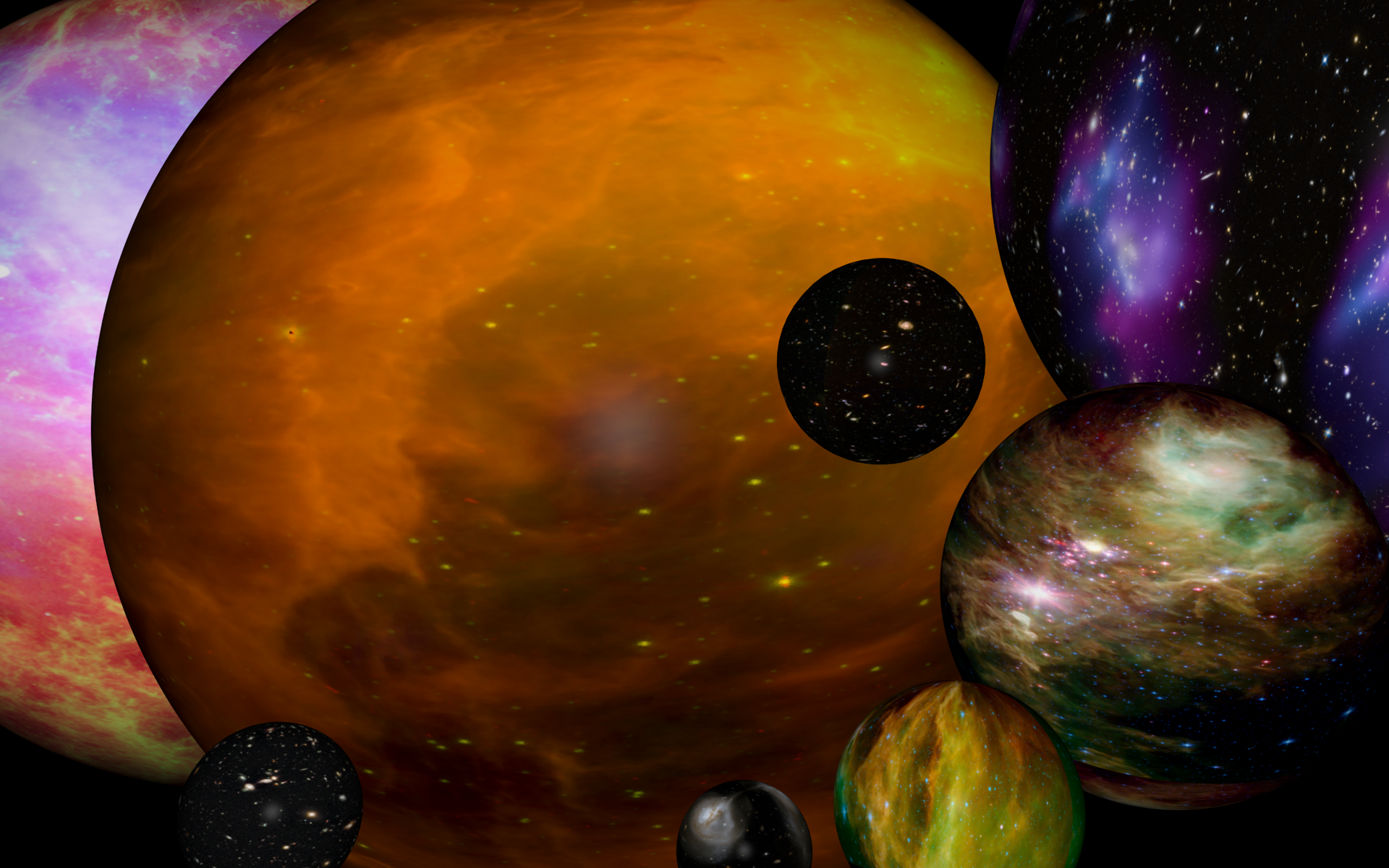In this contest, we considered Skewes' number. At one time, Skewes' number was the largest number ever to appear in a mathematical proof. It can be written as
10101034.
What physical quantity comes closest to Skewes' number?
 |
| The Universe. Vastly smaller than Skewes' number. |
This is a very large number. As mentioned in the contest post, it's vastly bigger than the number of atoms in the solar system. To even come close, we're going to have to think on the scale of the universe. There have been about 1018 seconds since the big bang. Since the fastest rate at which information can travel is the speed of light, there's only a finite region of the universe that's observable. Anything outside this region is so far away that even light left over from the beginning of time hasn't had time to reach us yet. This distance will be equal to the speed of light times the age of the universe, roughly 1026 m. The total volume of the observable universe will be this cubed, or roughly 1078 m3. Notice our exponent is only 78. We need it to be 101034. We're not even close yet!
What if we measured using a smaller unit than meters? What is the smallest unit we could measure with? We could use the Planck length ~10-35, which is the length scale at which our conceptions of space start to break down. If we measure the size of the observable universe in Planck lengths, it would be about 10183 Planck lengths. That's still only an exponent of 183. We've barely scratched the surface.
What if we considered space-time rather than just space? Einstein's theory of relativity treats time as just another dimension. Just like space, there is a Planck time (10-44 s) at which our concept of time begins to break down. The universe is about 1062 Planck times old. This means there are about 10245 observable points in space-time. Again, we're still only scratching the surface of Skewes' number.
Perhaps we should think about combinatorics. If we only consider universes that are the same size as our own, how many different possible universes can there be? According to particle physics, there are on the order of 10 fundamental particles (e.g., photons, electrons, quarks, etc.) If I consider only one point in space time, it has roughly 10 possible states corresponding to the different particles (or absence of particles) that can be found at that point. If there were only 2 points in space-time, there would be roughly 102=100 possible universes. For 10245 points in space time, there are roughly 1010245 = 1010102.4 possible universes. The third exponent 2.4 is still much smaller than the 34 that appears is Skewes' number. Even if we counted every possible universe, we'd still be very far away from Skewes' number!


But how big is the universe? You're just looking at the observable universe, not the whole thing. My understanding is that at the time of the Big Bang, not only was matter expanding through space, but space itself was expanding, resulting in the expansion appearing to exceed the speed of light. Hence, the universe is larger than the observable universe. I'm not a physicist, and my memory of the Big Bang is a bit fuzzy, so I can't answer that question, but Wikipedia says that the full universe is 10^23 times the size of the observable universe, so that must be true.
ReplyDeleteI think that pushes it nicely past Skewes' number.
Hi Preston!
ReplyDeleteCorrect, I'm only looking at the observable universe. As you say, Wikipedia says the full size of the universe is 10^23 times the size of the observable universe. Since anything Wikipedia says must be true, the actual universe would contain (10^23)*(10^245)=10^268 points. This would change my third exponent (which if I include more figures is actually closer to 2.39) to 2.43. This is about the same value I had originally. As you can see, it's rather difficult to change that third exponent.
I keep hearing that the Universe may, in fact, be infinite. It's an open question.
ReplyDeleteConsider that the Universe is indeed infinite. Consider that in a regeon of space, there are only so many ways that quantum particles can be arranged. How far away do you have to go to find an exact duplicate of you reading an exact duplicate of this comment? The answer has been computed as 10^(10^29000). Go this far in a straight line, in any direction. This has units of distance. But it doesn't matter much if you use light years or Planck units.
Of course, by the time you go that far, there won't be any 'there' there.